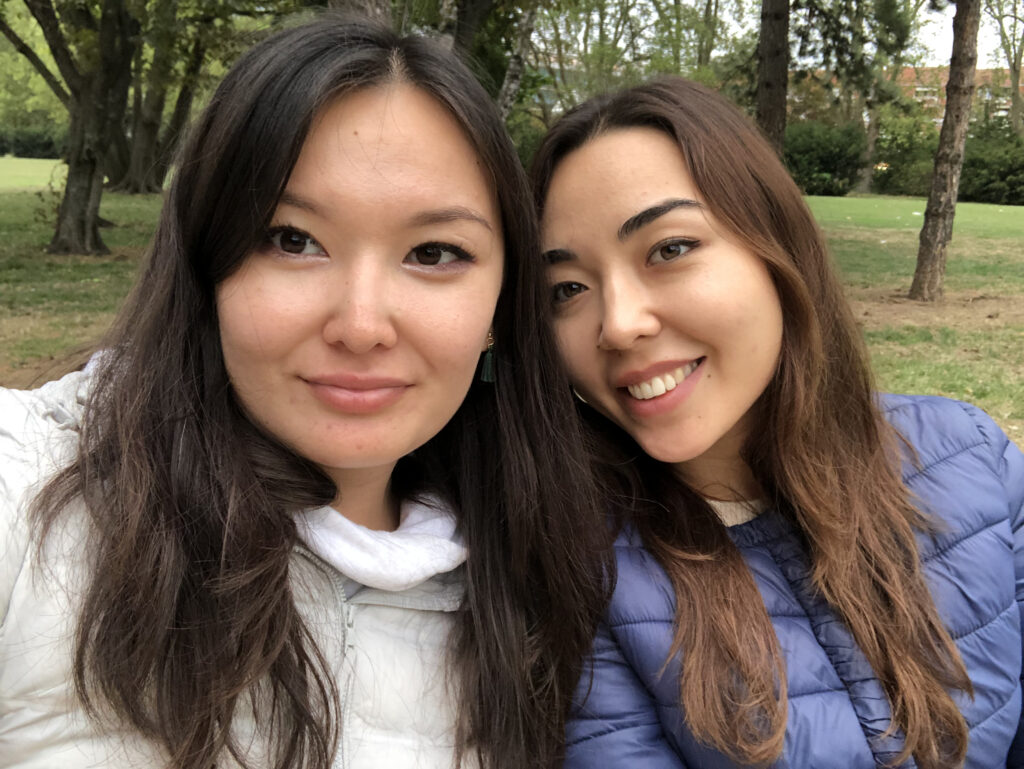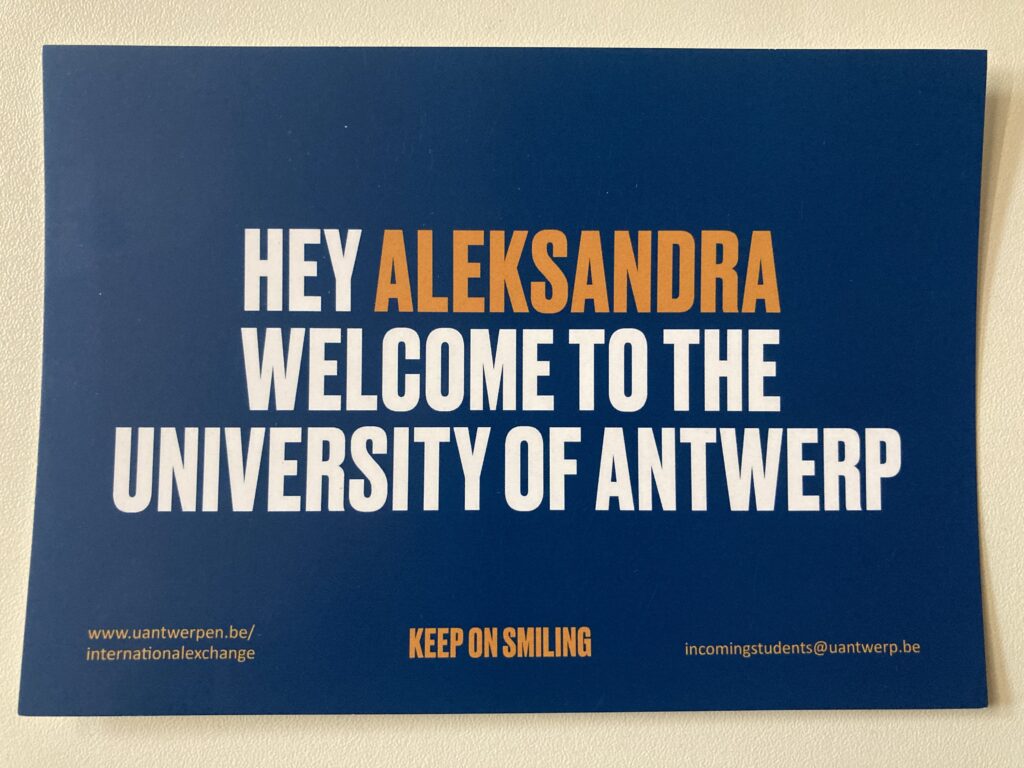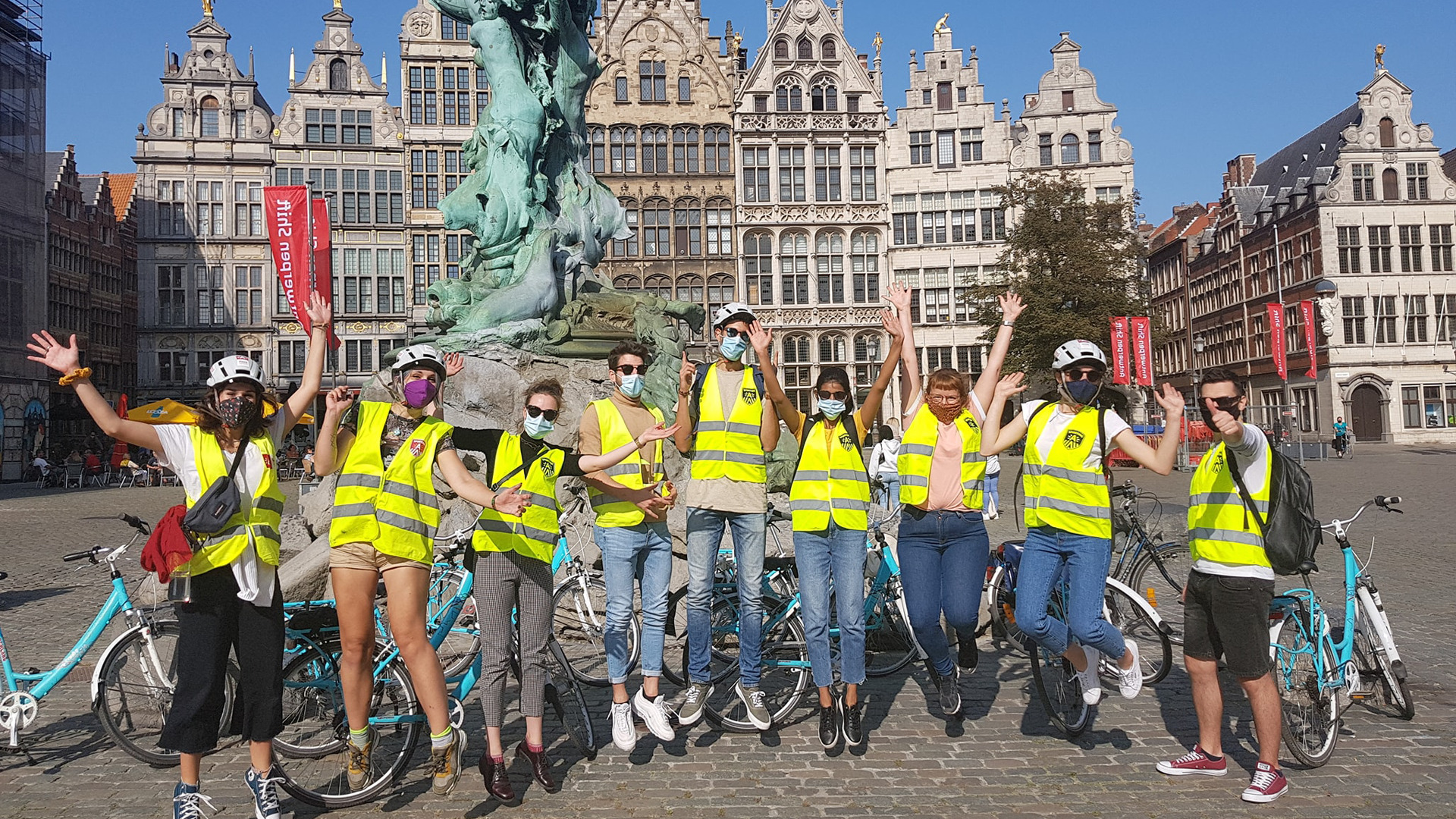It may have taken blood, sweat and tears, but more than 2000 international students have found their way to our university this year – even amidst a pandemic. ‘Postponing everything for this virus? I don’t think so. Life goes on’, says Bernara Bakhtiiar from Kyrgyzstan.
Just a few months ago, it was still uncertain whether any Erasmus or other international students would be coming to UAntwerp at all this academic year. ‘But in July, along with the other Flemish universities, we decided to go for it. After all, our own students are still studying here, and we can organise everything safely’, says Tim Berckmans of the International Relations Office.
In late September, Bernara Bakhtiiar and Azhar Akimbaeva travelled from Kyrgyzstan to Antwerp to attend the Master in Business Economics programme. Getting their stay sorted out was no small feat. They weren’t allowed to travel to the Belgian embassy in Moscow for their student visas. ‘Fortunately, the embassy was sympathetic to our cause. However, because of the coronavirus pandemic, our public services worked much more slowly, so it took six weeks to get everything sorted. That’s why we missed the start of the academic year. That first week, we attended class online. ‘We would sometimes be up until 1 a.m. because of the time difference, and we missed real interaction’, says Bernara.
Closed borders
Many intercontinental flights have been cancelled, and some countries – especially African ones – are keeping their borders closed. As a consequence, several international students are still stuck in their home countries, making do with online education for now. Applying for a student visa is also proving much more difficult in these times. ‘Remote learning is not exactly what people dream of when they sign up for international studies. And for programmes that include work placement or practicals, this can only be a temporary solution anyway. As the students don’t know when the situation will change, it’s extra difficult for them’, says Parul Goel, the coordinator of the International Student Office.

But even students who did make it to Antwerp were faced with obstacles. Parul: ‘Students who came from red zones had to be tested. We’ve now finally managed to arrange for this to be done in the test village at Park Spoor Noord. But there was another problem: when they arrive, students typically don’t have ID yet, so they can’t get their test results. We had to come up with a solution for that, too.’
Another problem was that students from red zones had to self-isolate for a certain period, which was two weeks back in September. Tim: ‘You can’t do that when you share a bathroom or a kitchen, so we had to find alternative housing for some of our international students.’ Bernara and Azhar also spent their first two weeks in Antwerp cooped up inside their shared flat. ‘At least we had each other’, Azhar says. They were pleasantly surprised by the university’s support. ‘After our quarantine period ended, Kim Van Overvelt from the Faculty of Business and Economics took the time to give us a tour.’
Cycling lessons
Welcoming the exchange students was not exactly a matter of course this year. ‘Our welcoming event, the International Students Fair, the beginners’ Dutch course… everything was online. Fortunately, there were also some face-to-face meetings in small groups. And the ESN students still organised a tour of the campus and an Ice-Breaking Week with all kinds of activities’, says Tim.
The programme for degree students also had to be adapted. ‘During our Welcome Week, only thirty students were actually present in person. Another 80 to 90 students attended the event online or watched it via live streaming, as they were either self-isolating or still in their home countries. For those who were able to attend the programme in person, we focused on social activities, such as introductory games and a welcome dinner. We even offered cycling lessons. Unfortunately, we can’t do that over the internet’, Parul laughs.
No place like home?
It should come as no surprise that the coronavirus pandemic has deterred many international students from coming to UAntwerp. The most noticeable drop can be seen in the number of exchange students: according to preliminary figures, their number has dropped from 530 last academic year to 397 now. Students from outside Europe, in particular, dropped out en masse: only five came to Antwerp this autumn, compared to 52 last autumn. ‘The number of our own students going on exchange has also fallen from 480 last year to 434 this year. Many cancelled their plans at the last minute, or asked if they could postpone their studies until next semester. And even more students might still end up cancelling’, says Tim.
The number of degree students, however, was less affected by the pandemic. Although some of them did cancel their plans, all in all they were as many as last year. For the time being, though, about sixty of them are studying online from home. Parul notes that for some people, COVID-19 was actually an extra reason to come to Belgium: ‘Places like India and South America have been severely affected by the pandemic, and have much weaker healthcare systems. Education never shut down completely in Belgium, while many universities abroad simply closed in the spring and no longer offered any form of education.’
‘Better off in Belgium’
Bernara and Azhar saw no reason to stay in Kyrgyzstan. ‘In our country, the health system collapsed completely during the first wave, and preventive measures are a lot less strict. So even though infection rates are on the rise again, we’re better off in Belgium.’ Their decision to come and study here was not made overnight. They both left their jobs for it. Bernara: ‘I visited Antwerp last year, and was very impressed by your university campus. All in all, I think I must have compared a hundred different study programmes. I ultimately chose Antwerp for the university’s high-quality educational programmes, but also for the city’s multicultural atmosphere. I definitely didn’t feel like postponing everything for a whole year. This virus will be with us for a long time to come, and life goes on.’

‘Anyone who comes to Antwerp to study under these circumstances is making a very conscious choice to do so’, says Tim. ‘These students enrolled with very few guarantees. What if they get stuck here? What if we have to switch entirely to online teaching? It takes courage to take that step.’ Parul agrees: ‘I think it’s admirable the way the students are handling all this, refusing to let a virus dictate their futures.’
Safe trips to the zoo
But it won’t be an easy year, Parul predicts: ‘We have to look out for possible problems: financial hardship due to the loss of student jobs, social isolation… and what if an international student falls ill? In the coming months, we’ll be sending out regular emails informing everyone about the different support initiatives out there. Faculties are also remaining vigilant.’ MONDO has launched a buddy system, similar to the existing ESN initiative. Both organisations are doing everything they can to offer safe activities, like visits to the Antwerp Zoo or to the Red Star Museum.
Bernara and Azhar have just had their first week on campus. They enjoyed simply being able to attend class, although they realise this situation might change quickly. So far, they haven’t had the opportunity to get to know their fellow students. ‘All meetings to discuss group assignments are held online. And we’d rather not go to the student restaurant for the time being’, Azhar admits. Nevertheless, they’re confident that it will be a fun year. This week, they’re going to a faculty dinner. ‘We’ve had to change our expectations a little, but we’re still very happy to be here’, Bernara concludes.


